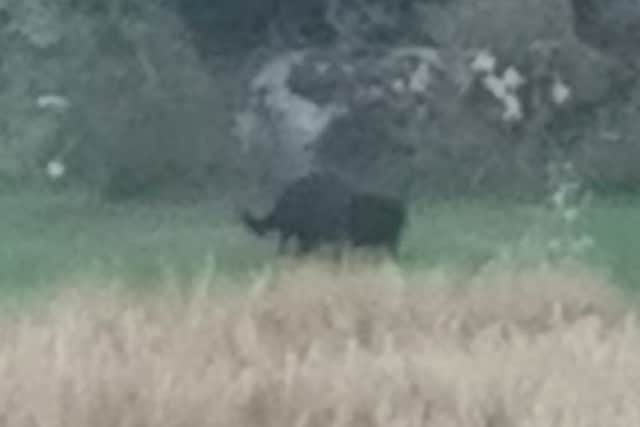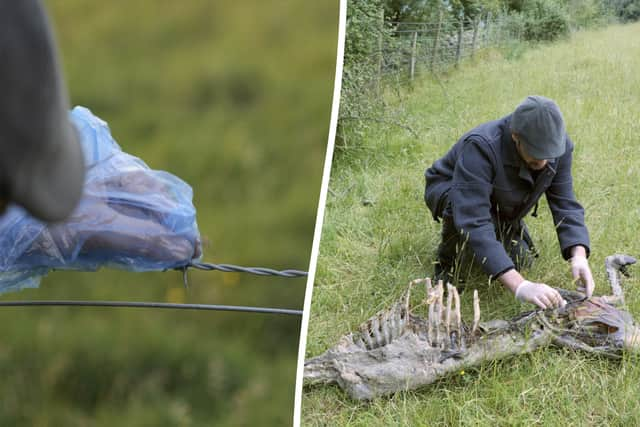DNA test ‘confirms’ black panthers and other big cats are roaming around the UK countryside
This article contains affiliate links. We may earn a small commission on items purchased through this article, but that does not affect our editorial judgement.
and live on Freeview channel 276
DNA from a black hair caught on a barbwire fence following a sheep attack in the UK has offered “definitive proof” big cats are prowling the British countryside, say documentary makers. The strands were sent off for testing after being recovered from a farm in Gloucestershire where there had been some “unusual” predatory activity.
Suspicion was raised when video footage of a large black animal was also captured only a few miles away from where the sample was taken. And documentary-makers, who had been investigating sightings across the UK, say the test has now come back ‘positive’ - confirming the existence of black panthers and other big cats living in the UK.
Advertisement
Hide AdAdvertisement
Hide AdA forensic laboratory took on the species identification task and used mitochondrial DNA analysis to ascertain a 99 per cent match to a big cat species. The findings have come to light as part of filming for an upcoming documentary - “Panthera Britannia Declassified” - which investigates claims of big cat sightings in Britain.
Matthew Everett, from Dragonfly Films, said: “The DNA was from hairs caught on a barbwire fence where there had been some unusual predatory activity. It’s taken five years for the production team to find such evidence and film its journey from collection to analysis.
“People in Gloucestershire and Britain have described what appear to be black leopards for decades. So, a leopard DNA result from a black hair sample is unsurprising. This is not the first such DNA result and is unlikely to be the last.
“There is a great deal of ‘secondary evidence’ for these cats, such as consistent witness reports, but hard evidence like DNA is hard to get, so the contribution from this documentary is very helpful. Collecting such evidence from local people, farmers and landowners is essential - Citizen Science like this will hopefully help us learn more about the Bagheera type big cats which may be quietly naturalising here.”
Advertisement
Hide AdAdvertisement
Hide AdResidents of countryside towns across Britain have reported sightings of what appear to be black leopards for decades. Several sightings of a large black cat were reported last year in Gloucestershire - including reports of one on the side of the motorway and another near an airport.
The farm where the DNA sample was recovered has had two individual sheep kill incidents in five years. During that time there have been regular sightings of cats resembling black leopards in the nearby countryside.


The previous sheep carcass at the same farm as the DNA result, was assessed for its tooth pits, which are marks on the bones from carnassial teeth of an animal that has fed on the carcass. Tooth pit analysis conducted at the Royal Agricultural University suggests that relatively large carnivores have fed on the carcasses examined, because of the impacted bones.


Witnesses commonly describe black panthers they see as ‘healthy’ and ‘confident’, which suggests they grew up in their environment. These cats mainly prey on wild animals like deer, and they have been reported pursuing foxes and even mousing, and going for ducks, geese and pigeons. While they can switch to sheep, it seems that they much prefer natural game.
Dragonfly Films is currently pursuing broadcast options for Panthera Britannia Declassified. An earlier version of the film “Panthera Britannia” available on Amazon Prime, Vimeo and Apple TV.
Comment Guidelines
National World encourages reader discussion on our stories. User feedback, insights and back-and-forth exchanges add a rich layer of context to reporting. Please review our Community Guidelines before commenting.
